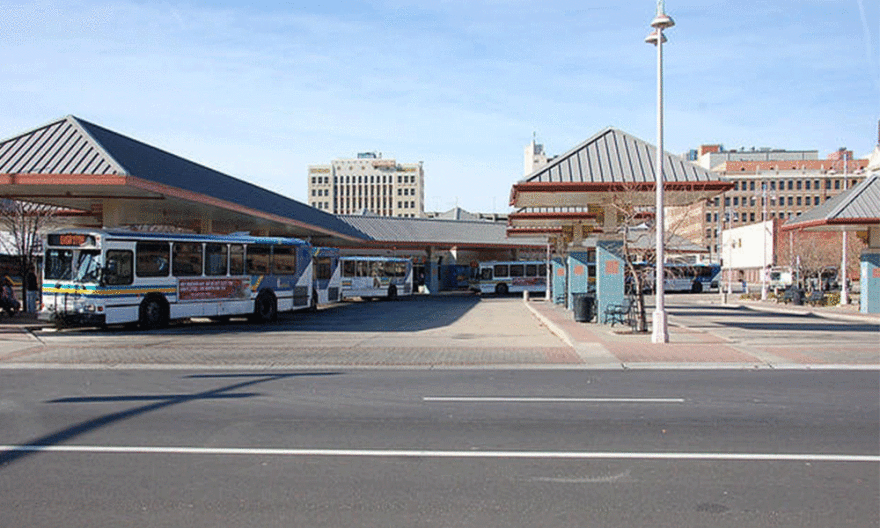The Wichita City Council is holding annual budget talks, and while officials have been happy to announce that the budget is balanced and few cuts have been made, the future of the city’s bus system is still undecided.
City Manager Robert Layton presented the 2016-2017 proposed budget to City Council members Tuesday morning.
He said that overall, he’s happy with how the budget has come along. After having discussions with the public, the city will put more money towards fixing streets, planting trees and addressing the problem of illegal dumping that plagues many neighborhoods. But a $2 million hole in transit funding still hasn’t been filled.
Layton presented a stopgap approach, but didn’t necessarily endorse it.
“I’ll tell you on the front end that this maybe doesn’t represent best practices, and that’s why this approach wasn’t recommended in the budget,” Layton said. “But it is a way to reach the $2 million [transit deficit] if the city council is comfortable with it.”
The plan calls for using $1.2 million in federal funding that was originally earmarked for purchasing new buses. The plan would also dip into the diesel fuel fund and take a $300,000 “loan” from the city’s general fund.
“At this point, it’s probably unlikely the transit system would be able to repay that $300,000 going forward,” Layton said.
He added that this stopgap approach will be the last of its kind. If the city can’t find other sources of revenue by 2017, there isn't another life preserver and an already struggling system will take a heavy blow.
Wichita City Council member Janet Miller says that even if the city can approve the $2 million stopgap, services will still decline in 2016. The city will be eliminating infrequently used routes and placing those buses on more popular ones.

“For some people, those will be essentially service cuts. We will be eliminating service for some people who currently have access to routes,” Miller said.
The move by city officials may improve the transit experience for the majority of riders, but it will leave some stranded.
The situation in Wichita is in stark contrast to cities of comparable size, like Des Moines. Despite having fewer people in its metro area, the city’s transit system has twice the ridership. Layton says that’s no accident.
“The reason we’re in such unique circumstances is that other cities have a designated funding source [for transit],” he said.
That could be a sales tax or--in the case of Des Moines--a property tax.
Voters in Wichita soundly defeated a sales tax back in November that would have, among other things, not only funded the bus system for five years, but expand its service.
Steve Spade is the director of Wichita’s bus system. He said it’s hard for his department to operate if funding is an issue year-to-year.

“It would be nice to have a five-year operating plan, where you know what services you’re going to improve,” Spade said. “Also, it’s really hard for the public to depend on us if conversations revolve around whether or not [transit] is going to be here tomorrow.”
According to Spade, the situation over at his office is pretty grim. The $2 million stopgap proposed by the city isn’t guaranteed and Spade doesn’t want to think about cutting into a bus system that’s already overworked.
“We have a lower quality of service than even Lawrence and Topeka,” he said. “We operate about 35 buses during the peak hour—a normal city our size should be operating closer to 90 or 100.
“In some cities you can find some savings around the edges and save money, but here, the service is so limited that when you start cutting you’re getting into the muscle and bone of the system.”
Spade has outlined some options to get Wichita’s bus system on par with the city’s vision for growth. Spade says a 1/20 of a cent sales tax would keep the system running at its current level. And a 1/10 of a cent sales tax would provide enough money to improve the system.
But campaigning for a sales tax will be difficult after last year’s failed attempt in Wichita and Governor Sam Brownback’s decision to increase the state sales tax.
Council Member Pete Meitzner knows that.
“The mayor mentioned last week, a sales tax to solve this problem probably isn’t palatable at this time,” he said.
At the end of Tuesday’s meeting, Mayor Jeff Longwell said he supports going forward with the $2 million stopgap for 2016.
The plan will have to be approved by city council members along with everything else in the new budget.
A public hearing for the budget is scheduled for Aug. 4.



